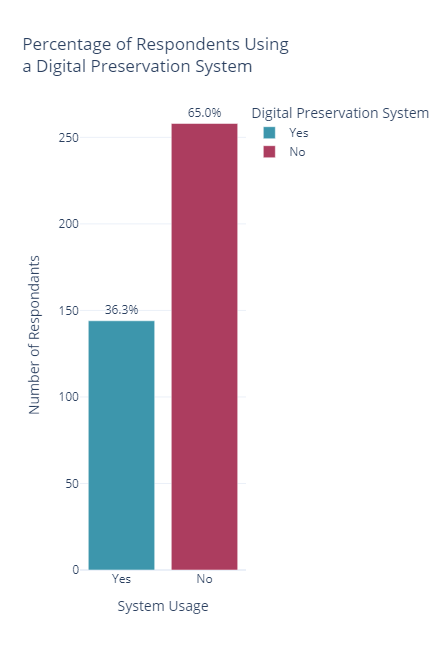Unlisted collections
While Learned Societies appear to have an average of 3.75 % of their collections unlisted, the survey suggests that Arts Organisations, Museums/Galleries and Schools/Colleges have over a fifth of their collections uncatalogued. Given the overall size of their collections Local Authority archives have about 13% of their archive collections unlisted.
The consequences for archive services are potentially severe:
- Limited Access: Without proper cataloguing, it becomes difficult for researchers and the public to find and access materials. This limits the usability and value of the archive.
- Loss of Information: Important details about the provenance, context, and content of the materials may be lost or forgotten over time, reducing the historical and research value of the collections.
- Inefficient Management: Archives without catalogues struggle with organisation, making it challenging to manage and preserve materials effectively. This can lead to misplaced or lost items.
- Increased Preservation Risks: Without knowing what is in the collection, archivists cannot prioritise preservation efforts, potentially leading to the deterioration of valuable materials.
- Missed Opportunities for Collaboration: Catalogued collections can be shared with other institutions and included in larger databases, increasing visibility and opportunities for collaboration.
Uncatalogued collections miss out on these benefits.
Digital holdings
Since 2019, The National Archives has conducted several surveys to assess the state of digital preservation in the archive sector. The data suggests that the sector requires additional support in this area and, as the sector lead body for archives in England, The National Archives is committed to developing advice, guidance and training to help build digital capacity in the sector.
To this end we launched our second strategy ‘Our Digital Century’ in 2023, building on the success of our first strategy, ‘Plugged In Powered Up’.
Our most recent survey suggests that:
- Majority Without Systems: The most striking conclusion is that the majority of entities (64.99%) do not have any digital preservation system in place.
- Popular Systems: Among those who do have systems, Preservica and in-house workflows are the most popular choices.
- Diverse but Limited Adoption: We were surprised to see the diverse range of systems in use
 By not tackling digital preservation management, archives are opening themselves up to significant risks:
By not tackling digital preservation management, archives are opening themselves up to significant risks:
- Data Loss: Without a digital strategy, digital records are more susceptible to corruption, accidental deletion, or technical obsolescence, leading to permanent loss of valuable information.
- Security Risks: Poor digital preservation practices can also compromise data safety and security, leading to unauthorised access, data breaches or data loss.
- Inaccessibility: Insufficient metadata or contextual information can make it difficult to understand or use digital records. This can hinder research, legal compliance, and other critical functions.
- Legal and Regulatory Non-compliance: Many sectors have specific regulations regarding data preservation. Not adhering to these standards can result in legal penalties as well as damage to trust and reputation.
- Increased Costs: Maintaining outdated systems or recovering lost data can be expensive.
- Organisational resilience: There is a risk of losing organisational knowledge and not being able to carry out core functions, especially if key personnel leave or if there is a lack of documentation.
Our interventions
Unlisted collections
Data from the survey informed The National Archives’ application to The National Lottery Heritage Fund, which awarded £5 million to Archives Revealed. Archives Revealed is a partnership between The National Archives, the Wolfson Foundation and the Pilgrim Trust. This funding will enable Archives Revealed to:
- Award new Consortium Grants of up to £150,000 to support projects spanning multiple archives and collections
- Offer more Cataloguing Grants of up to £50,000 and Scoping Grants of up to £3,000
The survey data collected on uncatalogued collections also provided evidence that we needed to start developing the next iteration of Logjam (Cataloguing Archives Prioritisation Tool), which was a tool created to address the backlog of uncatalogued archives and prioritise their cataloguing.
We also continue to develop our Manage Your Collections tool as an easy method for archives to upload their collections information to our online catalogue Discovery.
Digital holdings
In addition to the publication of ‘Our Digital Century’, we have:
- Continued to develop the Novice to Know-How digital preservation learning pathway with the Digital Preservation Coalition, including a new module on email preservation last year
- Recently refreshed our digital preservation workflow guidance
- Commissioned new entry-level guidance about Digital Asset Registers
- Worked with partners to review the Archive Service Accreditation national standard and ensure that it support services to deliver improved preservation and access to digital records
- Run training on digitally literate leadership to ensure that senior leaders can advocate for digital and can devise and implement a digital strategy
- Run the peer mentoring programme for a fifth year to continue the transfer of skills from those experienced in digital work to those less confident
Future plans also include:
- Providing targeted support for particularly under-resourced sectors, such as charities
- Developing a pilot of digital drop-in sessions for digital preservation advice
- Conducting more research into the carbon footprint of digital archiving
- Providing resources for reducing community digital exclusion
- Trialling our IMA tool to assess the extent of digital public record holdings held by local public record creating bodies